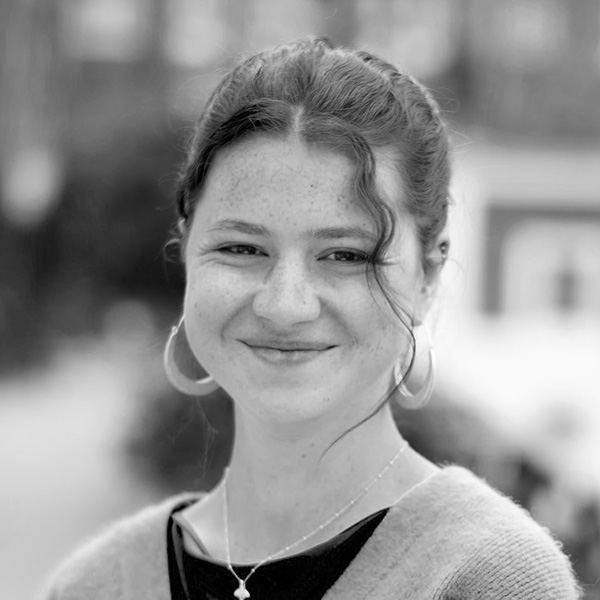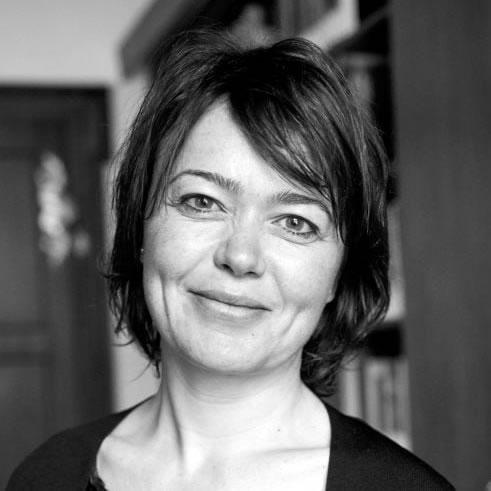
Andrea Ceni
Andrea Ceni received the M.Sc. degree in Mathematics cum laude from Università degli Studi di Firenze, Italy, in 2017, and the Ph.D. degree from the Department of Computer Science of the University of Exeter, UK, in 2021. He has been a Postdoctoral Research Associate at CEMPS, University of Exeter. Currently, he is a Research Fellow at the Department of Computer Science of the University of Pisa, Italy.
His research interests comprehend neuroscience, machine learning, and dynamical systems, with a clear focus on recurrent neural networks.
Andrea Cossu
Andrea Cossu is a Research Fellow at University of Pisa. His research focuses on Continual Lifelong Learning with Deep Neural Networks, with applications to Recurrent Neural Networks models and sequential data processing. During his PhD, Andrea spent three months as a visiting researcher at KU Leuven (Belgium) in Prof. Tinne Tuytelaars' group and three months as a Research Intern at Google Brain (Mountain View, California).
Andrea is Board Member and Treasurer of ContinualAI, a non-profit research organization gathering together Continual Learning researchers. He is one of the maintainers of Avalanche, one of the most popular Continual Learning libraries.
Anna Monreale
Anna Monreale is Associate Professor at the Computer Science Department, University of Pisa and, and a member of theKDD Lab, a joint research group with the Information Science and Technology Institute of the CNR in Pisa. She earned her Ph.D. in computer science from the University of Pisa with a dissertation about Privacy-by-design in Data Mining. Her research interests include big data analytics, social network analysis, ethical and legal issue raising in mining human data. In particular, she is interested in designing privacy risk assessment processes, privacy-by-design technologies for big data and explanations methods for machine learning based decision systems. Since 2008, she has been involved in different EU and Italian funded research projects and has participated in some industrial collaborations. Since 2022 she is Rector’s Delegate for the Postgraduate Programmes at the University of Pisa.
Bahador Bahrami
Ludwig Maximilian University of Munich
Bahador Bahrami originally from Iran and a medical doctor by training (Tehran University, Iran). He did a PhD in cognitive neuroscience (University College London, UK) in 2004-08 followed by periods of employment in interacting Minds center in Aarhus, Denmark (2008-2010) and UCL London (2010-2017) and Centre for Adaptive Rationality in Berlin (2018-2019). Since 2019 he has been a senior scientist and the director of Crowd Cognition Group at Ludwig Maximilian Universität in Munich, Germany. His research focuses on the cognitive basis of interactive decision making between autonomous agents such as animals, humans and artificial intelligence. He is currently supported by a European Research Council (ERC) Consolidator grant (ridO, 819040) that examines the social and neurobiological substrates of overconfidence in interactive decision making.
Claudio Gallicchio
Claudio Gallicchio is assistant professor at the Department of Computer Science of the University of Pisa. His research interests are at the intersection between the areas of Machine Learning, Deep Learning, Neural Networks and Dynamical Systems.

Clementine Fry
Clementine Fry is a Research Assistant at the University of Bristol, Faculty of Engineering Mathematics and Technology, also where she completed her undergraduate degree (BEng Engineering Mathematics) and master’s (MSc Robotics). Her dissertation project focused on using Turing patterns to spatially organise a swarm of robots by ensuring the system would converge to steady states. The experiments were done at Bristol Robotics Laboratory using a swarm of 100 Kilobots.
Cosimo Della Santina
Cosimo Della Santina is Assistant Professor at Cognitive Robotics (CoR), TU Delft. He received his PhD in robotics (cum laude, 2019) from University of Pisa. He was then a visiting PhD student and a postdoc (2017 to 2019) at the Computer Science and Artificial Intelligence Laboratory (CSAIL), Massachusetts Institute of Technology (MIT). From 2020, he is affiliated to the German Aerospace Centre (DLR) as external research scientist. For the first eight months of the same year he also held a post doc position at the department of Mathematics and Informatics, Technical University of Munich (TUM). He is now a guest lecturer at the same university.
His main research interests include (i) Modelling for Control and Model Based Control of Soft Robots, (ii) Combining Machine Learning and Model Based Strategies with application to soft robotics, (iii) Soft Robotic Hands/prostheses.
David Garzón Ramos
David Garzón Ramos is a Research Associate at the School of Engineering Mathematics and Technology at the University of Bristol, United Kingdom, and a member of the Bristol Robotics Laboratory (BRL). His research is at the intersection of artificial intelligence, collective intelligence, and robotics. He focuses on investigating how to use optimization and machine learning concepts to design large groups of intelligent and self-organized autonomous robots—the robot swarms. Since 2020, David has been a recurring guest lecturer for Robotics at Universidad de Nariño in Colombia. Before joining the Bristol Robotics Laboratory, David was a member of IRIDIA, the artificial intelligence laboratory at Université libre de Bruxelles, Belgium. Prior to that, he was part of ROBCIB, the Robotics & Cybernetics group at Universidad Politécnica de Madrid, Spain. David is active in the popularization of swarm robotics research through science communication activities.
Davide Bacciu
Davide Bacciu is Full Professor at the Computer Science Department, University of Pisa. He received his Ph.D. from IMT Lucca in 2008, for which he was awarded the 2009 E.R. Caianiello Award. His research interests cover machine learning for structured data, Bayesian learning, deep learning and its intersection with generative approaches, reservoir computing, distributed and embedded learning systems, with over 160 published works on the topic. He is the coordinator of the EIC EMERGE and H2020 TEACHING projects, as well as of Italian national and industrial projects.
He serves in several editorial and scientific boards, including acting as vice-chair of the IEEE technical committee on Neural Networks and as vice president of the Italian Association for AI.
Ebrahim Shahabi
Ebrahim Shahabi is a Postdoctoral researcher at the Department of Cognitive Robotics, Faculty of Mechanical, Maritime, and Materials Engineering, Delft University of Technology, Netherlands. He earned his Ph.D. in Biorobotics from Scuola Superiore Sant’Anna, Italy. His doctoral research focused on Octopus-Inspired Technologies for Blind Grasping and Manipulation of Unknown Objects. His current research interests encompass the design, modeling, and manufacturing of soft sensors and soft actuators.

Georgios Tzoumas
Georgios Tzoumas received the B.Eng. (Hons.) degree in Mechanical Engineering from Loughborough University, UK, in 2018, the M.Sc. degree in Robotics from the University of Bristol, UK, in 2019, and the Ph.D. degree in Swarm Robotics from the University of Bristol and Windracers Ltd., UK, in 2024. He is currently a Senior Research Associate at the University of Bristol, leading the AURA project for UAV-based wildfire response as part of the XPRIZE Wildfire semifinalist team (top 15 globally). From 2021 to 2024, he served as a Research Associate and Project Manager in the Innovate UK Future Flight programs, developing swarm deployment and autonomy tools for environmental applications. His research interests include swarm robotics, autonomous systems, environmental monitoring, and digital twin technologies, with a focus on developing scalable robotic systems for wildfire detection and mitigation.
Jurgis Karpus
Ludwig Maximilian University of Munich
Jurgis Karpus is a postdoctoral researcher in the Cognition, Values, Behaviour and the Crowd Cognition research groups at LMU Munich. His research lies at the intersection of philosophy, economics, and psychology. In particular, he focuses on rational choice and game theory. He is primarily interested in the modes of reasoning by which people arrive at personal decisions when they socially interact with fellow humans and artificial agents.
Maximilian Stölzle
Maximilian Stölzle is currently a Ph.D. candidate at the Department of Cognitive Robotics, Faculty of Mechanical, Maritime, and Materials Engineering, Delft University of Technology, Netherlands. He received a BSc. degree in mechanical engineering and a MSc. degree with distinction in mechanical engineering both from the Swiss Federal Institute of Technology Zurich, Switzerland in 2019 and 2021 respectively. His research during the master thesis focused on prototyping novel Self-Supervised Learning (SSL) methods for improving the perception capabilities of mobile robots.
His research interest includes the modeling, sensing, and control of soft robots. A focus lies on infusing knowledge and structure of first-principle / analytical models into machine learning approaches and developing data-efficient algorithms for achieving motor intelligence in soft robotics.
Nadine Meertens
Ludwig Maximilian University of Munich
Nadine Meertens is a PhD student at the Cognition Values Behaviour Research Group under the Chair of Philosophy of Mind at Ludwig Maximilians University Munich. She received her bachelor degree at Maastricht University in Arts and Culture (2020), and her master degree in philosophy from the University of Bern (2022). Beyond this she also went on an exchange at the University of Vienna (2020). Her master thesis looked at concept possession and attribution, comparing the borderline cases of artificial intelligence and nonhuman animals.
Her research interests fall within philosophy of mind, specifically focused on: artificial intelligence, animal minds, and comparative cognition. A focus lies on minimal minds, and the beginnings of cognition and consciousness.
Ophelia Deroy
Ludwig Maximilian University of Munich
Ophelia Deroy holds the Chair in Philosophy of Mind and Neuroscience at the LMU and is a member of the Munich Center for Neuroscience (MCN) in Munich. She is the former deputy director of the Institute of Philosophy at the University of London. She continues to direct the Center for Research in Experimental Aesthetics, Technology and Engineering there. She specialises in the philosophy of mind and cognitive neurosciences and has widely published on issues related to sensory and social interactions, both in philosophical and scientific journals. Her current research looks at specific cognitive benefits stemming from interactions.
She is an active promoter and a leading advocate of more robust connections between philosophical and scientific approaches to the mind and AI. Her work is frequently featured in the media, such as BBC4, the New York Times, New Scientist, Nature World View, NPR Radio, or Arte. In addition, she collaborates with museums and institutions to harvest the benefits of social interactions in their physical or virtual settings.
Riccardo Guidotti
Riccardo Guidotti, Assistant Professor at University of Pisa. Riccardo Guidotti was born in 1988 in Pitigliano (GR) Italy. In 2013 and 2010 he graduated cum laude in Computer Science (MS and BS) at University of Pisa. He received the PhD in Computer Science with a thesis on Personal Data Analytics in the same institution. He is currently an Assistant Professor at the Department of Computer Science University of Pisa, Italy and a member of the Knowledge Discovery and Data Mining Laboratory (KDDLab), a joint research group with the Information Science and Technology Institute of the National Research Council in Pisa. He won the IBM fellowship program and has been an intern in IBM Research Dublin, Ireland in 2015. He also won the DSAA New Generation Data Scientist Award 2018, and the Marco Somalvico Award 2021. His research interests are in explainable artificial intelligence, interpretable machine learning, quantum computing, fairness, and bias detection, data generation and causal models, personal data mining, clustering, analysis of transactional data.
Sabine Hauert
Sabine Hauert is Associate Professor (Reader) of Swarm Engineering at the University of Bristol in the UK. Her research focusses on making swarms for people, and across scales, from nanorobots for cancer treatment, to larger robots for environmental monitoring, or logistics. Before joining the University of Bristol, Sabine engineered swarms of nanoparticles for cancer treatment at MIT, and deployed swarms of flying robots at EPFL.
Sabine is also President and Co-founder of Robohub.org, and executive trustee of AIhub.org, two non-profits dedicated to connecting the robotics and AI communities to the public.
As an expert in science communication with 10 years of experience, Sabine is often invited to discuss the future of robotics and AI, including in the journal Nature, at the European Parliament, and at the Royal Society. Her work has been featured in mainstream media including BBC, CNN, The Guardian, The Economist, TEDx, WIRED, and New Scientist.

Suet Lee
Suet Lee is Ph.D. candidate at the University of Bristol, UK. Her research focuses on safety for swarm robotics, considering fault detection on multiple scales of the system (local, neighbour, swarm scale). She is also largely interested in complex systems across domains, distributed computation, and artificial intelligence.
Vincenzo Lomonaco
Vincenzo Lomonaco is an Assistant Professor at the University of Pisa, Italy where he teaches the Artificial Intelligence and Continual Learning courses. Currently, He also serves as Co-Founding President and Lab Director at ContinualAI, a non-profit research organization and the largest open community on Continual Learning for AI, Co-founding Board Member at AI for People, and as proud member of the European Lab for Learning and Intelligent Systems (ELLIS). In Pisa, he works within the Pervasive AI Lab and the Computational Intelligence and Machine Learning Group, which is also part of the and the Confederation of Laboratories for Artificial Intelligence Research in Europe (CLAIRE). Vincenzo is a Task Leader of two main European projects and a Principal Investigator of several industrial research contracts with companies such as Meta, Intel, Leonardo s.p.a. and SeaVision s.r.l.
His main research interest and passion is about Continual Learning in all its facets. In particular, he loves to study Continual Learning under four main lights: Deep Learning, Distributed Learning and Practical Applications, all within a AI Sustainability developmental framework.
Xavier Aubry
Xavier Aubry is the Founder of Da Vinci Labs, a deeptech incubator focusing on quantum technologies, artificial intelligence and synthetic biology. He has spent the past 20 years working with European scientists and innovators, as an entrepreneur, advisor or investor. Xavier is currently involved in several collaborative research projects where he aims to bring out future European deeptech champions.


















